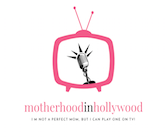I loved breastfeeding my girl. It wasn’t an easy start for us, but once we got there I have never felt such a sense of purpose and joy in my life. Chan never had any allergies or reaction to my breast milk so I never gave much thought to what I ate or specific supplements to take.
However, many women struggle with balancing their diet so it doesn’t affect their newborns while breastfeeding. Several moms in my mommy and me class had to watch their dairy intake, or what they ate in general because their little ones were very sensitive. We know what breast milk is, and what it’s made of, but do you know what it’s in your breast milk? Are you curious to find out what you can do to optimize your baby’s nutrition?
My mommy and me instructor introduced me to a new company called Lactation Lab and that’s exactly what they do. UCLA Assistant Clinical Professor Dr. Stephanie Canale works with top chemists and a world-class research lab to find out what’s in your breast milk and give recommendations based on the results. Canale tells me they use a simple, at-home testing kit that measures key nutrients, fats, calories and the presence of heavy metal toxins.
Since I am no longer breastfeeding, 2 of my mom friends who are agreed to try Lactation Lab and see how it works. My friend Lisa has a baby boy who’s just over a year old. She is still breastfeeding and is a very healthy eater. Truly, I am inspired by her vigilance when it comes to not only what she eats, but what she feeds her kids. Lactation Lab sent her a test, a few weeks later she had the results which she has agreed to let me share.
Based on her areas of need, Dr. Canale recommends:
-Calcium extra 500 mg daily
-Iron 65 mg every other day
-vitamin B12 1000mcg daily
-Avoid certain fish and decrease fish consumption
Lisa says she found the results helpful made her take a second look at her supplements.
“It was super easy to do, and the results are really interesting. It’s definitely making me think about taking some supplements I hadn’t thought to take until now, not just for my baby’s benefit, but for my health as well.” she said.
My friend Freddie is up next and was excited to try it.
“It was much easier than I anticipated-I just needed to pump about 3 ounces of breast milk into a test container that was provided, place in a box along with a couple ice packs (also provided) and send it back to the lab, postage pre-paid.” she said.
Based on Freddie’s results, Dr. Canale recommends:
-Take extra Vitamin C (diet or a 500mg daily supplement)
-Vitamin B12 1000mcg daily
-Avoid certain fish and decrease fish consumption
“I thought I was checking off most, if not all of my dietary/nutritional needs boxes. It was a slight surprise to discover that I am slightly deficient in B12, C and a bit high with mercury!” she said. “I’m a bit perplexed with my mercury levels. I don’t eat any of the seafood on the “do not eat” list, however I did resume eating salmon after Billie was born, and must presume that is the cause of my elevated mercury levels.” Freddie said.
Both women say they were fascinated with the process and grateful to have this information. The benefit being, they can alter their diet or supplements as needed to maximize nutrition for their newborns. Dr. Canale says she created this test to be a resource for new moms wanting to make sure their newborns are getting all the nutritional help they can get and hopes this test will give a piece of mind and direction to new moms seeking answers.
Freddie said, “This is a really great service for breastfeeding moms-I’m very happy I was able to submit and get my results-I want to provide the best nutrients as possible for my baby.”
For more information and to see if Lactation Labs is right for you, visit lactationlab.com.


















